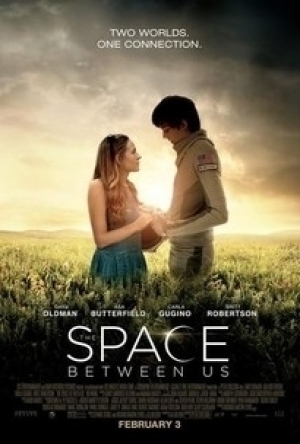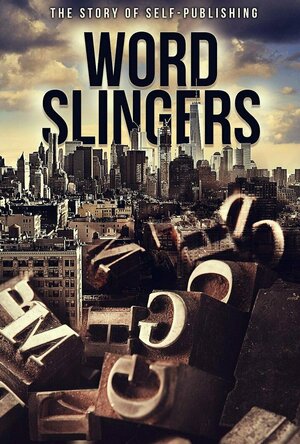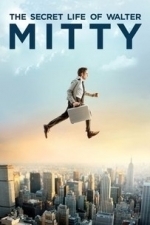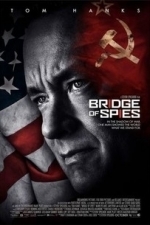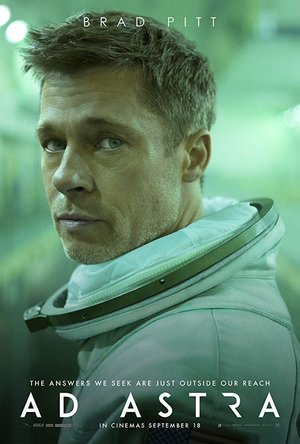Darren (1599 KP) rated A Walk In The Woods (2015) in Movies
Jul 8, 2019
Writer: Michael Arndt, Bill Holderman (Screenplay) Bill Bryson (Book)
Starring: Robert Redford, Nick Nolte, Emma Thompson, Mary Steenburgen, Nick Offerman, Kristen Schaal, R. Keith Harris
Plot: After spending two decades in England, Bill Bryson returns to the U.S., where he decides the best way to connect with his homeland is to hike the Appalachian Trail with one of his oldest friends.
Tagline – When you push yourself to the edge, the real fun begins.
Runtime: 1 Hour 44 Minutes
There may be spoilers in the rest of the review
Verdict: Never Captures the Sense of Adventure
Story: A Walk in the Woods starts when author Bill Bryson (Redford) returns to America after years of travel books, where he has never written about his homeland. Bill wants to walk the Appalachian Trail, over 2000miles, his wife Catherine (Thompson) isn’t happy with this decision forcing him to go with somebody, which sees him reconnect with an old friend Stephen Katz (Nolte).
Even though Stephen isn’t in the best shape for this hike, he is the only person that accepts the offer and the two set out on the 6-month long hike, hoping to create his next best seller, while reconnecting with an old friend.
Thoughts on A Walk in the Woods
Characters – Bill Bryson is a travel author that has been writing about hiking trails all over the world, only he has never written about America, he wants to change this, hoping to give himself a chance to experience the American walking trail of the Appalachian Trail, one of the most challenging hikes in the country. Stephen Katz is the only person that is willing to join Bill on his adventure, the two have had their differences in the past, he isn’t in the best shape for this adventure and sees it as a chance to reconnect with an old friend. Catherine is the wife of Bill that doesn’t want Bill to go on this hike, she is worried about everything that could happen, forcing him to go with somebody on the trip. Jeannie is one of the ladies that they guys meet on the journey, she is one of the many people they meet along the way.
Performances – Robert Redford and Nick Nolte are wonderful together in the leading role, you get to believe their friendship has been through the ups and downs life has to offer, only to let them get their solo moments when needed for the film. when we get to the supporting cast Emma Thompson does get her chance to shine without getting too much screen time.
Story – The story here follows an author who sets out on a new adventure travelling the Appalachian Trail, first for himself and secondly for his latest book, he reconnects with an old friend to join him on this adventure. This story does have a big difference from the book which sees a big age change, which does change the story, which is more focused on the older generation that are seeing their friends die and wanting to do another adventure before it is too late. The trip itself never gets shown in distance scale either, we know how far it is, but we don’t seem to learn where it starts and finishes or what locations we go through.
Adventure/Biopic/Comedy – The adventure side of the film does take the men on with a location that will be one of the highlights of the film, the biopic side of the film does use the real names, but not the real ages which does change the dynamic of the story completely. The comedy will give you a couple of laughs along the way, without it being a full-blown comedy.
Settings – The settings in the film do give us a couple of beautiful shots, though we don’t get to feel the distance being travelled.
Scene of the Movie – Mary Ellen.
That Moment That Annoyed Me – We never feel the distance they are traveling through the film.
Final Thoughts – This is an adventure film that doesn’t give us the sense of adventure that it could have, we do get great performances, but the story never draws us in the way it could.
Overall: Disappointing adventure.
Rating
Gareth von Kallenbach (980 KP) rated The Space Between Us (2017) in Movies
Jul 12, 2019
Gardner finds a box of his mother’s things in a storage room and a photo of who he believes to be his father. His urge to go to Earth and meet his father and Tulsa is to the point he will do almost anything. Kendra seeing the pain that Gardner is in she decides to reach out to Genesis Director Chen (BD Wong) and founder Nathaniel Shepherd (Gary Oldman) and requests they allow him to come to Earth. Shepherd is against it. Pointing out that, due to the reduced gravity of Mars, Gardner’s bones will be weaker and more brittle and his heart will be enlarged. Almost assuredly making living on Earth impossible. Determined to make it to Gardner goes through painful operations to strengthen his bones and intense training to improve his muscles. After 16 years he is finally allowed to travel to Earth. Only to be quarantined and battered with tests upon arrival. Undeterred, he breaks out of the facility and heads out to find Tulsa. He finds her and convinces her to help him find his father. So they head out cross country to find his family and seem to be finding love along the way. But Kendra and Shepherd are hot on their heels. They rush to track Gardner down before his health deteriorates and is unable to survive in Earth’s environment.
The Sci-Fi story is a heartwarming one in The Space Between Us. It is a futuristic love story of two teens who are worlds apart, literally in this instance, but both find the one person in the universe who is meant for them. Butterfield does a good job of playing Gardner and showing how someone removed from this world can be awkward and out of place but also be amazingly honest and forthright. Robertson performance is okay as the tough product of a foster system teen that has a rough exterior but longs for a family. The love story and interaction between these two characters is definitely the bright spot. The rest of the cast is good and the overall story had some original concepts, such as the first human born on Mars. But there are times that are a little cheesy for my personal taste. Also the ending in my opinion was predictable and a forgone conclusion. How the film was presented visually was hit and miss for me. There would be beautiful shots of mountain passes, the ocean or the desert that really captured the beauty of Earth as if they were being seen for the first time. Then there were times when the shot was blurry and you could tell the people, vehicles or aircraft was out of place. The shots of space were very much the same some good some bad.
Overall the movie was good but not really something I would want to go back and see again. It definitely had the feel of a movie you could take the whole family to, very wholesome. I wish it was more constant visually.

Tracks4Africa Guide
Reference and Travel
App
Welcome to the most detailed travel guide for overland travel in Africa. This offline app offers a...
Bob Mann (459 KP) rated Wordslingers: The Story of Self-Publishing (2021) in Movies
Sep 28, 2021
The democratization of publishing
The internet has brought many advantages to modern life, but perhaps one of the most interesting is the democratization of publishing. No longer is control in the hands of publishing houses, who might glance at and immediately dismiss new ideas in literature. It’s worth remembering that 12 publishing houses turned down J.K. Rowling’s draft for Harry Potter! Now anyone can be creative in writing and self-publish on the web. My own wife – Sue Mann – did just this, self-publishing the WW1 poems and reminiscences of two of her great-uncles. (It’s available from all good bookshops… oh, no…. actually just from here!) Are the poems artistically any good? I have no idea! Will it sell many copies? Clearly not! Was it a personal goal achieved in honouring their memory? Absolutely! Different people want different things from the medium.
Very ‘American’.
It’s probably down to the pioneer spirit, but as a generalisation Americans seem far more ambitious than Brits: or at least, more OPENLY ambitious. Whereas most Brits will quietly get on with building their careers, some Americans will go hell-for-leather towards their vision of “success” no matter the cost: no guts; no glory; and be noisy about it!
But for every J.K. Rowling or Bill Bryson there are several thousand writers who have ‘failed to launch’.
Here we follow two budding authors – one from California; the other from North Carolina – self-publishing their work and seeking sales.
One – Giles A (“Andy”) Anderson – has self-published a seemingly disturbing work called “Vidu” – the first of what he hopes will be a five-part series. He first talks from a ghoulish bookstore, speaking psycho-babble with the requisite hyperbole of an ‘artiste’. (It suggests how the books might read… but perhaps that’s misjudging). It comes then as a surprise when we find he doesn’t live alone in a coffin playing video games on his own, but has a lovely wife and two young and perfectly normal children. So his book is an “off the beaten track kinda book”, but the man seems well-grounded and following his dream in bite-size pieces.
Moral: Avoid the Travel Books
As is often the case though, the documentary homes in on, and spends most of its time with, the other author – Adam Shephard. Shephard is struggling to launch as an author and also – in parallel – wrestling with the Green Card process for his supportive and vivacious Croatian wife Ivana. The problem is that Shephard has written an extended travel blog: ten-a-penny on sites like WordPress.
I read a Forbes article last year that reported that – astonishingly – in a survey 11% of American respondents had never travelled outside of their home state and 40% had never left the country. For such a well-heeled country, the US is incredibly insular. So Shephard’s vision is to encourage youngsters to step outside of their comfort zone and jump on that plane to Guatemala. It’s a fine objective. But does anyone want to listen? And – crucially – is the book any good and commercial enough? As the famous ‘founder of self-publishing’, the late Dan Poynter (to who the film is dedicated) says “You can’t make any money off a travel book”.
The film never goes as far as having either of the featured books critically reviewed: that might have added some extra spice to the story (and possibly provoked some painful reactions). But the piles of unopened boxes in Adam’s clinically white storage facility rather speaks for itself. Since Shephard never seems to do anything by halves, the boxes are piled high and thus the fall from grace is hard, long…. and absolutely riveting. (Ivana’s support and love in such difficult circumstances is commendable: he is a truly blessed man).
Jaw-dropping Walmart scene
At least at the start of the film, Adam’s self-belief and confidence in himself is infectious. The peak of his bravado, and a jaw-dropping highpoint in the movie for me, was a scene filmed in Walmart. Shephard, in a case of “reverse shoplifting”, sneaks HIS books onto the bookshelves of Walmart. What happens when they then try to buy one? It’s a real eye-opener and worth watching the documentary for in its own right.
It’s an interesting legal position: if Walmart were to be upset about this scene, what on earth could they charge them with!? Littering?
Highs and lows.
Shephard seems to have talent as a speaker, and it struck me that he would be genuinely suited to a job in sales. In the movie we see him performing self-confidence-building pitches to young people (and, boy, could we sometimes use that in the UK post-Brexit). A few books sold. But another event barely breaking even. The pattern becomes familiar and, in a way, rather tragic.
There are unexpected highs and lows for Adam and Ivana along the way though, unrelated to the publishing story, and the filmmaker skillfully weaves them into the narrative to good effect.
Thought-provoking.
I watched this on a whim and thought I’d probably switch off after 10 minutes. Documentaries normally are not my thing! But no. It had me gripped to see how things would turn out – like watching a slow-motion car crash! The journey was well-worth the ride: a real page-turner you might say.
Loz Hughes (80 KP) rated The Secret Life Of Walter Mitty (2013) in Movies
Jul 15, 2018
Whilst most people will mark this movie lower, they are not wrong in their opinions, for many it may not seem anything special as such.
However I always watch this film whenever I am feeling low or life feels a bit much, because to me, it portrays that its never too late to achieve your dreams and start your adventure.
The film itself opens to an introduction of Walter (Ben stiller), an employee of Life magazine whose job has very much taken over his life, it shows his passion for his work and how he wishes very much, to be more like the adventurous photographer he chronicles. Walter is ridiculed and undermined by his work colleagues for his "spaced out" episodes where he dreams of what he would do or achieve if he were braver, smarter, more confident etc, like an alter ego of sorts.
Walter is then faced with a choice to accept failure and ridicule when he loses a negative in his care or embrace the unknown and not forsake his pride in a journey to hunt down its original owner.
Throughout the film you follow Walter in his quest to search for the missing negative and also his journey on the path of becoming the man he always hoped he would be as a teenager.
Along the way, stunning vistas and scenery set the scene and the humour keeps it from being boring.
Sure the film is a little fanciful but anyone with a good imagination and an element of Walter in them will appreciate it.
My favourite scene is when he is nearly attacked by a shark.."okay. That is not a porpoise" cracks me up every time.
I know a lot of people will mark this film lower and they wont be wrong in their opinions, it doesnt really contain many special effects, it does have a really awkward romance (but lets face it, reality is full of those moments you wish you had been more charming and less of a babbling idiot) and the storyline is a bit far fetched.
However I find it fun, uplifting, charming in its own way and enjoy the travel aspect of it.
Gareth von Kallenbach (980 KP) rated Bridge of Spies (2015) in Movies
Jun 19, 2019
When suspected spy Rudolf Abel (Mark Rylance), is arrested New York Tax Attorney James Donovan (Tom Hanks) is asked to provide Abel with a competent defense so the United States can show the world that Abel was given a fair trial and due process despite the charges against him.
Although hesitant what defending an accused spy will bring hatred to him and his family, Donovan takes up the task and despite a judge and process that wants to railroad this to a conviction in spite of possible illegal search and seizure, Donovan is able to avoid the death penalty for his client and even files an appeal before the Supreme Court as he is convinced his client was convicted on evidence that was illegally obtained.
At the same time, a young Air Force pilot named Francis Gary Powers (Austin Stowell), is shot down by the Russians in a U-2 spy plane and is paraded by the Russians on television before being convicted of being a Spy.
This situation increases and already tense situation and when the East German government starts to build the Berlin Wall and takes an American student prisoner for espionage, back channels contact Donovan to discuss a possible exchange of prisoners.
Now since this cannot be done by any official sanction of the U.S. or Russian governments, Donovan must in secret travel to Berlin and meet with figures to obtain a release. The U.S. wants Powers and considers the student an expendable throw in but Donovan is resolute to bring them both home in exchange for his client Abel.
The film is beautifully shot and masterfully acted with top performance by Hanks and the leads. The events are fairly close to the historical accounts I studied as a child and Spielberg is wise to let the story and the characters drive the film and not create over impassioned speeches or tacked on action sequences to build the drama.
The film is an early contender for several Oscar nominations as far as I am concerned as is one of the best movies of 2015.
http://sknr.net/2015/10/16/bridge-of-spies/

Peppa Pig Me Books
Book and Entertainment
App
Listen to your favourite Peppa Pig stories or record and save your own versions! * Peppa Pig: Fun...

Daily Word Search Puzzles
Games and Entertainment
App
Welcome! Find the words as fast as you can as you test your diagonal and backward reading skills!...
BankofMarquis (1832 KP) rated Ad Astra (2019) in Movies
Sep 27, 2019
Unfortunately, that is pretty much all PItt - and this film - does.
AD ASTRA follows the adventure of Astronaut Roy McBride (Pitt) who's father Clifford McBride (Tommy Lee Jones) is a fabled Astronaut who disappeared while on a deep space mission to Neptune. When a Galaxy-wide energy pulse emanating from Neptune threatens life on Earth, suspicion is that Clifford is still alive in orbit around Neptune and the hope is that Roy can contact him and stop this life threatening force.
Sounds like an interesting premise, doesn't it? And it could have been. And the world that was built for this movie - a world set in the "near future", one where we did not stop going to the moon and space and there are now space stations - and colonies and pirates(!) - on the Moon and Mars, is an interesting concept and I really wanted to explore that world.
Unfortunately, Director and Writer James Gray (THE LOST CITY OF Z) was not interested in exploring this (so why build it?!?) - he was more interested in contemplating the meaning of life's purpose and fate and legacies and do the sins of the father really come back to seek payment by the son? And I do mean contemplate, for that is what Pitt's character does through most of this film - sit and think (which we hear through voice over), while contemplative music plays wistfully.
It's a good recipe to cure insomnia.
While Pitt does a nice enough job in the lead - an actor can only do so much with looking, thoughtfully, out the window. Ruth Negga and Donald Sutherland both try to inject some life in this film, but their parts are, in essence, extended cameos and the likes of "that guy" actors like Donnie Kashawarz, John Finn and John Ortiz pop up for a scene or two along the way as we travel across our Galaxy with Pitt but don't really register Only Tommy Lee Jones manages to liven things up...but his presence is too little too late.
Like a parent, I am not upset at this film, just disappointed at the choices that were made. I thought Pitt and Gray knew better.
Letter Grade: B- (it is well made and pretty to look at)
6 Stars (out of 10) and you can take that to the Bank(ofMarquis)

Microsoft OneNote
Productivity and Education
App
Capture your thoughts, discoveries, and ideas and simplify overwhelming planning moments in your...

